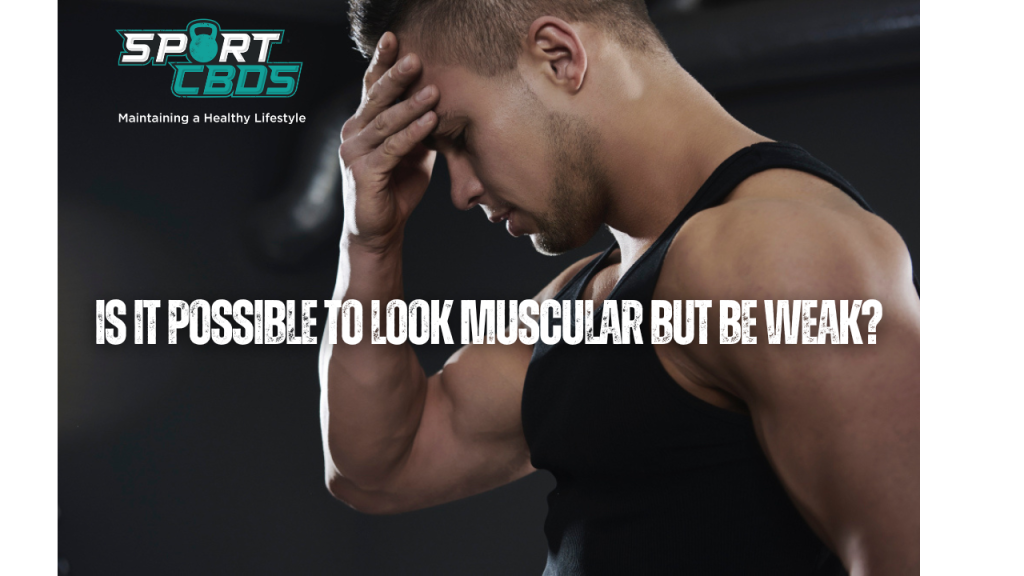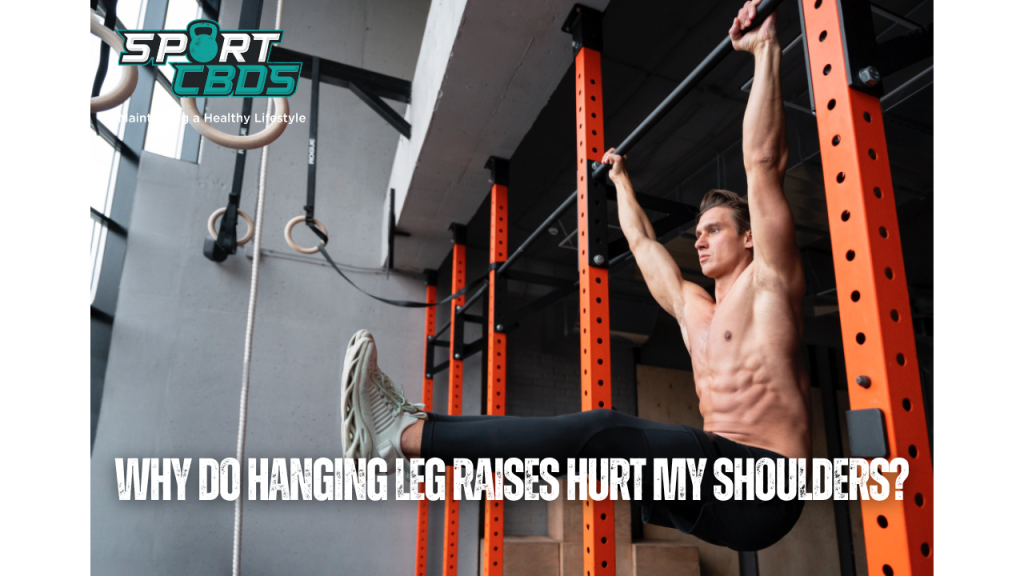
Is it Possible to Look Muscular but Be Weak? Unraveling the Fitness Paradox
Muscle weakness, often confused with muscular appearance, is a complex phenomenon that can be both perplexing and concerning. While a muscular appearance may symbolize strength and vitality, it doesn’t necessarily correlate with actual muscle strength. This paradox of looking muscular but being weak is more than just a superficial contradiction; it’s a medical reality for some.
The concept of muscle weakness refers to the inability of a muscle to generate its expected force or movement, even when exerting full effort. On the other hand, a muscular appearance is often associated with well-defined muscles and physical prowess. However, underlying health conditions and factors can create a situation where an individual appears muscular but is, in fact, weak.
This introduction aims to explore this intriguing paradox and delve into the underlying causes, symptoms, and treatments that may lead to this condition. The following sections will provide a comprehensive understanding of muscle weakness, its contrast with muscular appearance, and the various factors that can lead to this perplexing situation.
Is it Possible to Look Muscular but Be Weak?
Yes, it is possible to look muscular but be weak, a phenomenon that can be both perplexing and concerning. This paradox arises from various underlying factors, including specific training focused on muscle size rather than functional strength, underlying health conditions like thyroid disorders, or neuromuscular diseases such as muscular dystrophy. Even lifestyle factors like prolonged bed rest or certain medications can lead to this situation. While a muscular appearance often symbolizes strength and vitality, it doesn’t necessarily correlate with actual muscle strength. Recognizing this difference is vital, as it emphasizes the importance of comprehensive training, awareness of underlying health conditions, and the need for regular health check-ups to ensure not just a muscular appearance but genuine strength and well-being.
Understanding Muscle Weakness
Definition and Explanation of Muscle Weakness
Muscle weakness is a condition where full effort doesn’t produce a normal muscle contraction or movement. It’s sometimes referred to as Reduced muscle strength, Muscular weakness or Weak muscles. This condition can be temporary or persistent, depending on the underlying causes.
Short-term vs. Persistent Muscle Weakness
A short-term muscle weakness is often caused by fatigue, overexertion, or a tough workout. It usually resolves with rest and proper nutrition.
Persistent muscle weakness indicates an underlying health condition and requires medical attention. It doesn’t improve with rest and may worsen over time.
Voluntary Muscle Contractions
Voluntary muscle contractions are generated when the brain sends signals through the spinal cord and nerves to a muscle. Any injury or disease affecting the brain, nervous system, muscles, or the connections between them can produce muscle weakness.
Examples of Conditions Causing Muscle Weakness
Muscle weakness can be caused by a variety of conditions, including:
- Neuromuscular Disorders: Such as muscular dystrophies, multiple sclerosis (MS), amyotrophic lateral sclerosis (ALS).
- Autoimmune Diseases: Including Graves’ disease, myasthenia gravis, Guillain-Barré syndrome.
- Thyroid Conditions: Hypothyroidism and hyperthyroidism can lead to muscle weakness.
- Electrolyte Imbalances: Such as hypokalemia (potassium deficiency), hypomagnesemia (magnesium deficiency), and hypercalcemia (elevated calcium in the blood).
Understanding the difference between appearance and actual strength is vital, as it helps in early diagnosis and treatment. The next sections will further explore the symptoms, diagnosis, and treatment options for muscle weakness, providing a comprehensive view of this complex issue.
Causes of Muscle Weakness
Muscle weakness is a multifaceted condition with various underlying causes. Understanding these causes is essential for proper diagnosis and treatment. Below is a detailed exploration of common causes:
Neuromuscular Disorders
Muscular Dystrophies are a group of genetic diseases that cause progressive weakness and loss of muscle mass. Multiple Sclerosis (MS) is an autoimmune disease that affects the central nervous system, leading to muscle weakness. Amyotrophic Lateral Sclerosis (ALS), also known as Lou Gehrig’s disease, affects nerve cells in the brain and spinal cord, causing loss of muscle control.
Autoimmune Diseases
Graves’ Disease is an autoimmune disorder that causes hyperthyroidism, leading to muscle weakness. Myasthenia Gravis is a chronic autoimmune neuromuscular disease that causes weakness in the skeletal muscles.
Thyroid Conditions
Hypothyroidism, or under active thyroid, can lead to fatigue and muscle weakness. Hyperthyroidism, or overactive thyroid, may cause muscle weakness, particularly in the thighs and arms.
Lifestyle Factors
Prolonged Bed Rest and lack of physical activity can lead to muscle atrophy and weakness. Chronic alcohol abuse, known as alcoholism, can cause alcoholic myopathy, leading to muscle weakness.
Medications and Drugs Causing Muscle Weakness
Certain medications and drugs can lead to muscle weakness, including statins and other lipid-lowering agents, antiarrhythmic drugs such as amiodarone (Pacerone) or procainamide, corticosteroids, and colchicine (Colcrys, Mitigare), used to treat gout.
Understanding these causes is vital for proper care and management of muscle weakness, emphasizing the importance of a comprehensive medical evaluation.
Related: One-Sided Dominance: Do You Have a Better Mind-Muscle Connection On One Side?
Symptoms and Diagnosis
Common Symptoms Associated with Muscle Weakness
Muscle weakness can manifest in various ways, including decreased muscle tone where muscles feel soft and doughy, the ability to extend a limb beyond its normal limit, failure to acquire motor-related developmental milestones, and problems with feeding, shallow breathing, and speech problems.
Diagnostic Procedures
Diagnosing muscle weakness requires a thorough examination and may include CT Scans or MRI to examine the inner structures of the body, nerve tests to assess how well the nerves are working, electromyography (EMG) to test the nerve activity in the muscles, and blood tests to check for signs of infection or other conditions.
Importance of Early Diagnosis and Consultation with Healthcare Providers
Early diagnosis and consultation with healthcare providers are crucial for effective treatment. If you experience muscle weakness for which there’s no normal explanation, making an appointment with a healthcare provider is essential. The treatment plan will depend on the underlying cause of muscle weakness, as well as the severity of symptoms.
Understanding the symptoms and undergoing proper diagnostic procedures ensures timely intervention and can significantly improve the quality of life for individuals experiencing muscle weakness.
Treatment Options
Muscle weakness requires a multifaceted approach to treatment, tailored to the underlying cause. Here’s an overview of some common treatment options:
Physical Therapy
Physical therapists may suggest exercises to improve the quality of life for those suffering from muscle weakness. This can include progressive resistive exercise to strengthen weak muscles, stretching, and range of motion exercises to prevent stiffness.
Occupational Therapy
Occupational therapy focuses on strengthening the upper body through exercises designed to enhance strength. Therapists may also recommend assistive devices and tools to help with day-to-day activities, making life more manageable for those struggling with muscle weakness.
Medication
Medication plays a vital role in managing muscle weakness. Over-the-counter pain relievers like ibuprofen can be used to manage pain associated with muscle weakness. In cases of hypothyroidism, thyroid hormone replacement therapy, such as levothyroxine, may be prescribed.
Dietary Changes
Dietary changes can be an essential part of treatment, especially when muscle weakness is caused by electrolyte imbalances. A healthcare provider may recommend changes in diet to balance electrolytes and may suggest supplements like calcium, magnesium oxide, or potassium oxide if needed.
Surgery
In some cases, surgical interventions may be necessary for specific conditions, such as a herniated disc or hyperthyroidism treatment. Surgery can be a vital part of a comprehensive treatment plan, providing relief and improving the overall quality of life.
The treatment of muscle weakness is complex and requires a personalized approach. Consulting with healthcare providers and specialists ensures that the treatment plan is tailored to the individual’s specific condition and needs, offering the best chance for recovery and improved quality of life.
Related: The Strength Showdown: Do Women Have Stronger Legs Than Men in General?
FAQs
Can you have big muscles but be weak?
Yes, it’s possible to have big muscles but be weak. This can occur due to underlying health conditions, imbalances, or focusing solely on muscle size without functional strength training.
Why do my muscles look big but I’m weak?
Muscles may look big but be weak due to factors like overtraining, lack of functional exercises, or underlying medical conditions like thyroid disorders.
Why am I so light but look muscular?
Being light but looking muscular could be a result of low body fat percentage combined with well-defined muscles. Genetics, diet, and specific training can contribute to this appearance.
Is it possible to be thin and muscular?
Yes, it’s possible to be thin and muscular. This body type often results from a combination of genetics, metabolism, and targeted strength training.
Is it common to look muscular but be weak?
It’s not highly common, but it can occur, especially if training focuses on appearance rather than functional strength, or if there are underlying health issues.
What are the signs of underlying muscle weakness?
Signs include difficulty in lifting objects, climbing stairs, or performing daily tasks, along with fatigue, muscle atrophy, and decreased muscle tone.
How can one differentiate between normal fatigue and muscle weakness?
Normal fatigue improves with rest, while muscle weakness persists or worsens over time. Medical evaluation is essential for proper diagnosis.
What are the immediate steps to take if sudden muscle weakness occurs?
Immediate steps include seeking medical attention, especially if accompanied by other symptoms like numbness, confusion, or difficulty breathing. It could be a sign of a serious condition.
Final Thoughts…
Understanding the paradox of looking muscular but being weak is more than a superficial concern; it’s a complex issue with underlying health implications.
This article has explored the various causes, symptoms, treatments, and real-life examples of muscle weakness. Emphasizing the importance of recognizing the difference between appearance and actual strength, it encourages regular health check-ups and awareness.
Knowledge and proactive care are key to maintaining not just a muscular appearance but genuine strength and well-being.
Do you know anyone that looks muscular but are weak? Have our tips been beneficial to you? We’d love to hear your feedback, so please share your thoughts in the comments section below.
If you’re a sports enthusiast who utilizes CBD for optimal recovery after intense workouts, then you’ve found your tribe. Welcome to Sport CBDs, where we push our limits in training and prioritize recovery in the most effective way possible.
We regularly share workout routines on our YouTube channel and offer a range of health and fitness products designed to give you that competitive edge.
Why not explore the high-quality CBD products we proudly feature on our site? Visit the Sport CBDs Store by clicking here. In addition to CBD, we also offer an array of fitness clothing and yoga accessories to complement your active lifestyle.
Until next time, we wish you the best in your fitness journey. Remember, your progress is our passion. Stay strong and keep pushing!

Lee
Founder – Sport CBDs
Featured Image Attribution – Image by gpointstudio on Freepik

